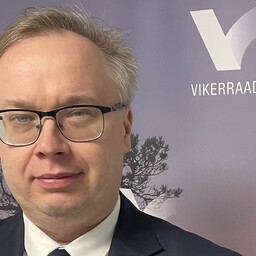The trade war initiated by US President Donald Trump is causing chaos in financial markets. The main problem is uncertainty. However, it cannot yet be compared to the coronavirus pandemic or the 2008 financial crisis. Luikmel says: "The concern for exports is not as great as during the pandemic. Here, it is more a question of the future of global trade."
Before the elections, Trump promised to ease financial regulations and encourage riskier behavior. However, he has not yet done so. Rather, his actions have frightened major US stock companies and their shareholders.
Trump claims that Europe has taken advantage of the US. Therefore, protective tariffs should be imposed on European exports. Luikmel notes that tariffs are currently just one topic used to accuse Europe.
Luikmel says: "Tariffs have never been the real issue in US-Europe relations. Tariff rates have fluctuated between one and three percent."
The reason for the decrease in production is that Americans no longer want to do low-wage jobs. They have moved to the service sector, where wages are on average higher.
If Trump wants to revive US industry, he needs to find people who can eliminate the trade deficit. However, there is not enough labor in the US. This would mean importing labor, which would go against Trump's immigration policy.
Luikmel notes that the US dollar may weaken so much that imports to the US will become more expensive. Higher tariffs may achieve this in the short term. However, this would raise prices for US consumers and hamper domestic consumption.
Globally, higher tariffs would primarily affect poorer countries. This could have a serious impact on the domestic politics and future of these countries.

